Jakarta, MINA –: Indonesia’s former top diplomat in Canberra was “shocked” by the Morrison government’s decision to consider moving Australia’s embassy in Israel from Tel Aviv to Jerusalem, and has urged Australia to adopt a more independent foreign policy from the US, WAtoday reported.
Nadjb Riphat Kesuma, who served as ambassador to Australia from 2012 to 2017 under Indonesian Presidents Susilo Bambang Yudhoyono and Joko “Jokowi” Widodo, said the Australian government should “distance yourselves a bit” from the United States.
The comments from the recently-retired veteran diplomat underscore the deep disquiet in Jakarta over the proposal, which has led to suggestions the signing of the Indonesia-Australia free trade agreement could be delayed.
Also Read: MUI Warns Government of Risks Behind Proposed Stabilization Force Deployment to Gaza
The Indonesian government has publicly dismissed that idea, so far, but with the presidential election in April next year that could change if the opposition, led by perennial presidential candidate Prabowo Subianto, decides to use the issue to politically wedge Mr Widodo.
Mr Nadjib’s comments come after former prime Malcolm Turnbull and Scott Morrison were publicly at odds over the issue this week, following Mr Turnbull’s critique of the proposal after his meeting with Mr Widodo in Bali.
The possible move of the embassy, he said, and diplomatic recognition of Jerusalem as the nation’s capital was a very difficult issue for Indonesians as the status of the Palestinian people, and state, was an issue most held dear to their heart.
“The [potential] move of your embassy of course makes people – many people and many organisations – think that this is not a friendly move towards Indonesia.
Also Read: Prof. El-Awaisi: The Mandate to Liberate Al-Aqsa Began at Prophethood
Differentiate itself from the United States
Australia should, Mr Nadjib said, differentiate itself from the United States, a reference to President Donald Trump’s decision this year to move that country’s embassy to Jerusalem, which angered the Muslim world.
Also Read: Mount Semeru Erupts, Trapping Dozens, Forcing Evacuations in East Java
“If Australia wants to play a more important role among the countries of Asia and ASEAN, I think now it is time to show a little bit of difference with the United States,” he said.
“Australia is always considered by the countries of this region as part of us, as part of ASEAN plus six, you are part of so many dialogues in the region. So it’s time to play a more important role in the region by maybe distancing yourself a bit from America and becoming more part of Asia.”
Earlier this week in a major foreign policy speech, Mr Morrison promised deeper co-operation with Japan, Indonesia, India and South Korea “to help forge a balance in our region” as strategic competition between the United States and China heats up.
Evi Fitriani, an international relations academic at the University of Indonesia, said the issue had the potential to damage bilateral relations.
Also Read: President Prabowo Inaugurates UAE-Funded Emirates–Indonesia Cardiology Hospital in Solo
“I don’t think it will go as far as cut off diplomatic ties but it could somehow push the signing of IA-CEPA [the free trade agreement] until after the presidential election,” she said.
The former ambassador said while every prime minister of Australia spoke about the importance of Indonesia, “the warmness of Jokowi-Turnbull, I can say that this was on a personal basis”.
Not one government official was consulted about Australia’s major Israel foreign policy shift
While Mr Widodo had warmly welcomed Mr Morrison to the Presidential Palace in Bogor soon after he was installed as Prime Minister, the potential embassy move had cast a shadow over the bilateral relationship.
It is not yet clear when the Morrison government, which is reviewing the status of Australia’s Israeli embassy, will make a decision on the potential move but it is expected to be by the end of the year.
The Turnbull government had considered moving the Australian embassy, and the matter was discussed informally – but dismissed – by the National Security Committee of cabinet months ago.
Meanwhile, the Morrison government opened a new argument on the policy on Friday by suggesting the embassy move could be matched by the opening of an Australian embassy to recognise Palestine.
Defence Minister Christopher Pyne said the policy was “entirely even-handed” because it would help a two-state solution in the region.
Also Read: Indonesia’s Hajj Ministry Engages Local MSMEs to Strengthen Catering for 2026 Pilgrims
“If we were to move the embassy from Tel Aviv to West Jerusalem as the capital of Israel, and when there is a Palestinian state … we would then open an embassy in East Jerusalem as the capital of a Palestinian state,” Mr Pyne said on Sky News.
“So it’s an entirely even-handed approach, and why shouldn’t we consider the very simple matter of whether our embassy should be in Israel’s capital city, which is Jerusalem?
“There’s far too much hyperventilating going on over this issue.”
Also Read: Indonesia Denies Being Destination for Forced Relocation of Gaza Residents





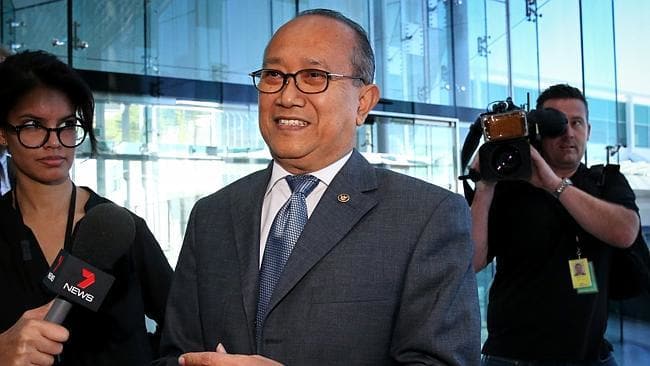









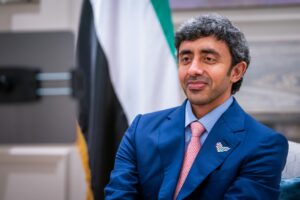

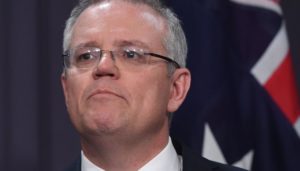
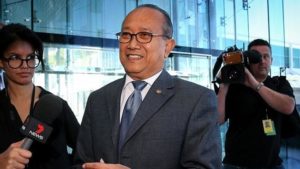
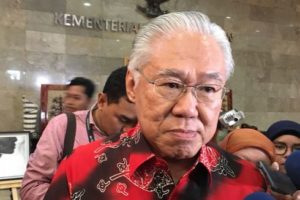












 Mina Indonesia
Mina Indonesia Mina Arabic
Mina Arabic